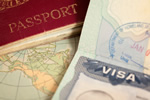Expats warned over losing money to forex scammers

Expats warned over losing money to forex scammers
The increase in the number of expats living and working overseas far from their home countries is a gift for unprincipled currency traders and their forex scams. An unprecedented number of nationals from countries worldwide are on the move due to reassignments, study or simply the chance to change their lives for a better option. The sheer size of the 21st century movement is seen by crooks working in the financial sector as a free pass to even more successful frauds. Foreign currency exchange is a closed book to many expatriates, all of whom need the service in order to manage their finances.
The foreign exchange market itself isn’t a scam – it’s simply the swapping of one currency for another based on the immediate value of one against the other. It’s routinely done worldwide millions of times a day, whether money itself is being exchanged or a customer is buying an item from a foreign website via a credit or debit card payment. The problem of scams starts with the fact that most people don’t know much about how the system works and can easily be tempted by fake offers and easy money.
Tricks can by identified using the old saying ‘if it looks too good to be true, it isn’t true’. If a forex trader is offering the earth, it’s a wildly waving red flag for anyone tempted to take up the offer. Another ancient saying ‘there’s no such thing as a free lunch’ should also be kept in mind. One sneaky way to trap the unwary is to promise everything and more on a website, but give very few if any details of how the system works. Requests for relevant information will be met with decidedly dodgy answers if at all.
For once, Google really is your friend as fake websites, scams and other illegal attempts to defraud clients are immediately reported by victims. Entering the firm’s name plus ‘scam’ could well result in hours of unhappy reading as well as saving you a lot of hard-earned cash. Comparison sites are also useful, and the UK Daily Mail’s ‘This is Money’ pages are popular for their due diligence and information. Keep a look-out for the location of any forex firm you’ve doubts about, as a business registration in an offshore tax haven is often the first sign of dodgy tactics. A visit to your home country financial regulator’s website will tell you whether the firm is legal in the UK.
The majority of reputable currency brokers will allow new clients to try before they buy by setting up a demo account and playing for a while. Basically, the best way to ensure you’re safe from forex scammers is to simply use one of the major players such as banks or the online household names in the sector. ‘Guilty until proved innocent‘ is the watchphrase for expats looking to exchange currency.
Related Stories:
- Is Kuwaitization the unintended result of the oil price crash? - July 20, 2020
- Expats in Malaysia still banned from overseas travel - July 17, 2020
- HSBC Asia to cut back on internal expat relocations - July 16, 2020
- Tips on integrating for newly-arrived expats - July 15, 2020
Latest News:
- Tips on a trouble-free relocation as an expat overseas - July 20, 2020
- Expats find peace in the covid-19 refuge of Dahab town - July 20, 2020
- Is Kuwaitization the unintended result of the oil price crash? - July 20, 2020
- Expats unhappy abut changes to Korean points-based visa system - July 17, 2020
- Chiang Mai and Bangkok no longer bargain locations for expats - July 17, 2020
- Expats in Malaysia still banned from overseas travel - July 17, 2020
- Vietnam welcomes expats to its safe, affordable lifestyle - July 16, 2020
- Asian tiger economies reach out to expats in Hong Kong - July 16, 2020
- HSBC Asia to cut back on internal expat relocations - July 16, 2020
- Tips on integrating for newly-arrived expats - July 15, 2020


